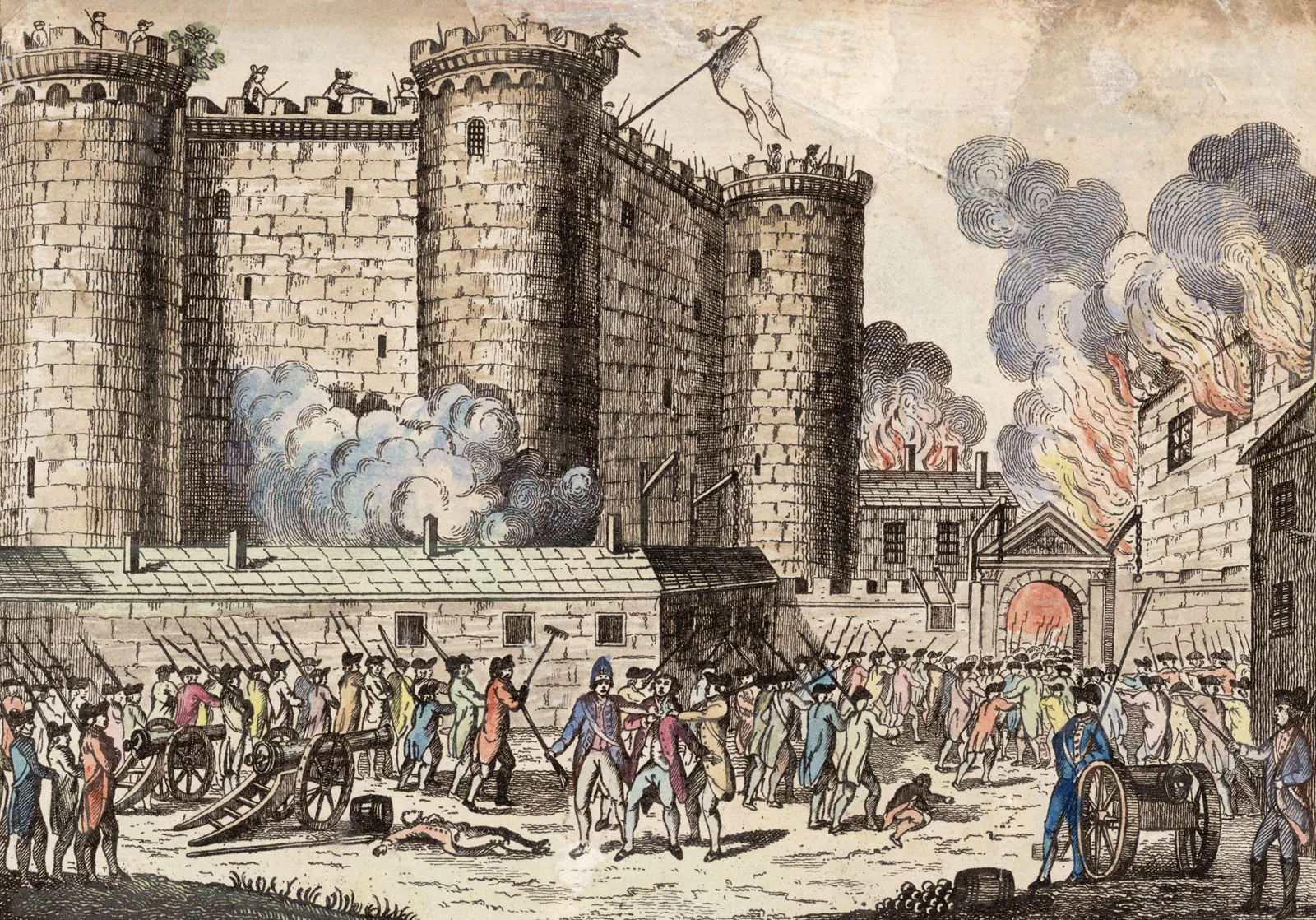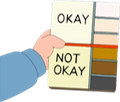On the 14th of July in 1789, a crowd of nearly one thousand protesters stormed the Bastille in Paris, France, a major event in the French Revolution, commemorated annually as "Bastille Day".
In the months running up to the uprising, the people of France were facing a dire economic crisis, food shortage, and increased militarization of Paris on orders of King Louis XVI. The Bastille was an armory and prison, perceived by many as a symbol of royal authority in the city.
On the morning of July 14th, a crowd of approximately one thousand people surrounded the Bastille, calling for the surrender of the prison, the removal of its cannon, and the release of the arms and gunpowder stored there.
After negotiations stalled, the crowd surged into the courtyard of the Bastille and were fired upon by troops in the garrison. In the carnage that followed, ninety-eight protesters and one defender of the Bastille were killed.
Governor Marquis de Launay, fearing his troops could not hold out, capitulated to the crowd and opened up the Bastille doors. He was captured and dragged towards the Hôtel de Ville in a storm of abuse. While the crowd debated his fate, the badly beaten Launay shouted "Enough! Let me die!", kicked a pastry cook in the groin, and was then promptly stabbed to death.
As news of the successful seizure of the Bastille spread throughout the country, revolutionaries established parallel structures of power for government and militias for civic protection, burned deeds of property, and in some cases attacked wealthy landlords.
King Louis XVI first learned of the storming the next morning through the Duke of La Rochefoucauld. "Is it a revolt?" asked the King. The duke replied: "No sire, it's not a revolt; it's a revolution."
Megathreads and spaces to hang out:
- 📀 Come listen to music and Watch movies with your fellow Hexbears nerd, in Cy.tube
- 🔥 Read and talk about a current topics in the News Megathread
- ⚔ Come talk in the New Weekly PoC thread
- ✨ Talk with fellow Trans comrades in the New Weekly Trans thread
reminders:
- 💚 You nerds can join specific comms to see posts about all sorts of topics
- 💙 Hexbear’s algorithm prioritizes comments over upbears
- 💜 Sorting by new you nerd
- 🌈 If you ever want to make your own megathread, you can reserve a spot here nerd
- 🐶 Join the unofficial Hexbear-adjacent Mastodon instance toots.matapacos.dog
Links To Resources (Aid and Theory):
Aid:
Theory:


Forgot to consult the chart